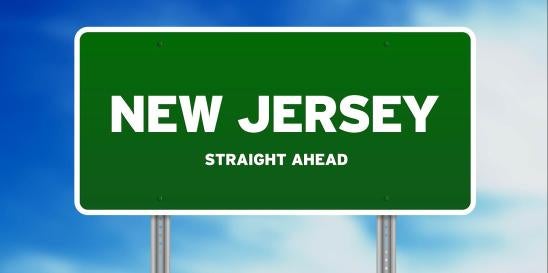In January 2024, Governor Phil Murphy signed into law the Community Wealth Preservation Program (CWPP), amending N.J.S.A. 2A:50-64 & N.J.S.A. 22A:4-8, which expanded the rights of certain purchasers before and at sheriffs’ sales of residential properties and made comprehensive changes to the foreclosure sale process for both residential and non-residential properties. Lenders should contact an experienced attorney who can guide them through the nuances of the CWPP and the processes involved in developing a bidding strategy, preparing the notice of sale, and formulating their “upset price” under the CWPP.
What types of properties and loans are subject to the CWPP?
The CWPP solely applies to “residential properties,” which are defined as real property within the State that is “…utilized as a primary residence or dwelling”. The CWPP expressly excludes real property that is acquired for “investment, commercial, or business purposes or real property containing more than four residential units.” Lenders should be aware that although the CWPP does not apply to commercial loans and non-residential properties, the CWPP applies to foreclosures of residential properties owned by business entities.
What are some key changes to sheriffs’ sales involving residential properties?
The CWPP made key changes to the contents of the notice of sheriff sale provided by the foreclosing plaintiff:
- Plaintiff must provide notice of the “upset price” four (4) weeks prior to the sheriff’s sale, which is posted on the sheriff’s website. The CWPP defines “upset price” as the “…minimum amount that a foreclosed upon property shall be sold for in a sheriff’s sale as determined by the foreclosing plaintiff”. Keep in mind that the “upset price” under the CWPP is not necessarily the maximum amount the plaintiff is allowed to bid at the sale but rather the lowest price plaintiff will accept, less commissions.
- Plaintiff is prohibited from increasing the “upset price” listed in the original notice of sale by more than three (3) percent on the date of sale, except in limited circumstances.
- For sales subject to the CWPP, plaintiffs must disclose whether the property is vacant, tenant-occupied, or owner-occupied prior to the completion of the sale and provide supervised access to the successful bidder if plaintiff has access.
The CWPP also expanded the rights of certain classes of persons and entities at and before the sheriff sale who seek to occupy the foreclosed premises as their primary residence:
- The CWPP permits the foreclosed defendant or their next of kin, or a tenant (if the defendant or next of kin does not participate) the right of first refusal to purchase the property in the amount of plaintiff’s opening bid on the date of the sale, provided that satisfy the criteria for proof of financing set forth under the CWPP.
- No interest will accrue on the balance of the sale of the property until sixty (60) business days have passed, and the bidder will have an additional thirty (30) days to pay the balance to the sheriff. If the balance is not paid in ninety (90) days, the bidder forfeits the deposit and is responsible for the payment of accrued interest and any fees or penalties in certain circumstances.
- The CWPP requires any successful bidder to occupy the premises as their primary residence for a period of 84 months and imposes penalties, including up to a $500,000 fine for repeat offenders.
- The sheriffs’ deeds for sales subject to the CWPP must contain restrictions prohibiting a re-sale of the foreclosed property for a period of 84 months from the date of the sheriff sale.
- The CWPP downwardly adjusted the amount of the sale deposit due on the date of sale from 20% to 3.5%. However, the 20% deposit requirement on the date of the sale remains applicable to all sheriff sales, which are exempt from the CWPP.
- If the foreclosed defendant or next of kin decides not to participate in the sheriff’s sale or fails to secure proof of sufficient financing as of the date of the sale, the CWPP permits a nonprofit community development corporation (NCDC) the right of second refusal to purchase the property at the foreclosing plaintiff’s opening bid amount.
Are there any key changes under the CWPP impacting sheriff sales of non-residential real estate and other property?
- County sheriffs are now permitted to charge a 6% commission on the successful bid price with the caveat that for any sale that reverts back to the foreclosing plaintiff, the sheriff commission is capped at $150.00. This change applies to foreclosure sales of both residential and non-residential properties. Under the old law, the commission was calculated at 6% on all sums up to $5,000 and 4% on any excess amount.
- For sheriff sales other than mortgage foreclosure sales, including what’s known as “execution sales,” sheriffs are now entitled to charge a commission of 10% on all sums up to $5,000 and 5% of any excess amount. An “execution sale” is a remedy of a judgment creditor holding a monetary judgment against a debtor where the sheriff levies upon and then auctions either real or personal property of the judgment debtor (subject to all liens and encumbrances) in whole or partial satisfaction of the money judgment.
- Always remember that where a foreclosure judgment is paid off after the paperwork is forwarded to the sheriff to schedule the sale but prior to the actual sale, the sheriff is entitled to receive one-half of the commission they are entitled to in the case of an actual sale by law. As a result, it is critical for plaintiffs to factor in this amount as part of any settlement or loan payoff since these monies will be due from the foreclosing plaintiff to the sheriff.
- It has been this author’s experience that some sheriffs are confused by the scope of the CWPP and are directing plaintiffs to disclose their lowest bid price in notices of sale involving foreclosures of non-residential properties, which are exempt from the CWPP. This is problematic since plaintiffs may not want to divulge their “upset price” prior to the sheriff sale for strategic reasons or don’t want to commit to a price knowing they will be unable to increase the price more than 3% on the date of the sale, except in limited situations.



 i
i


